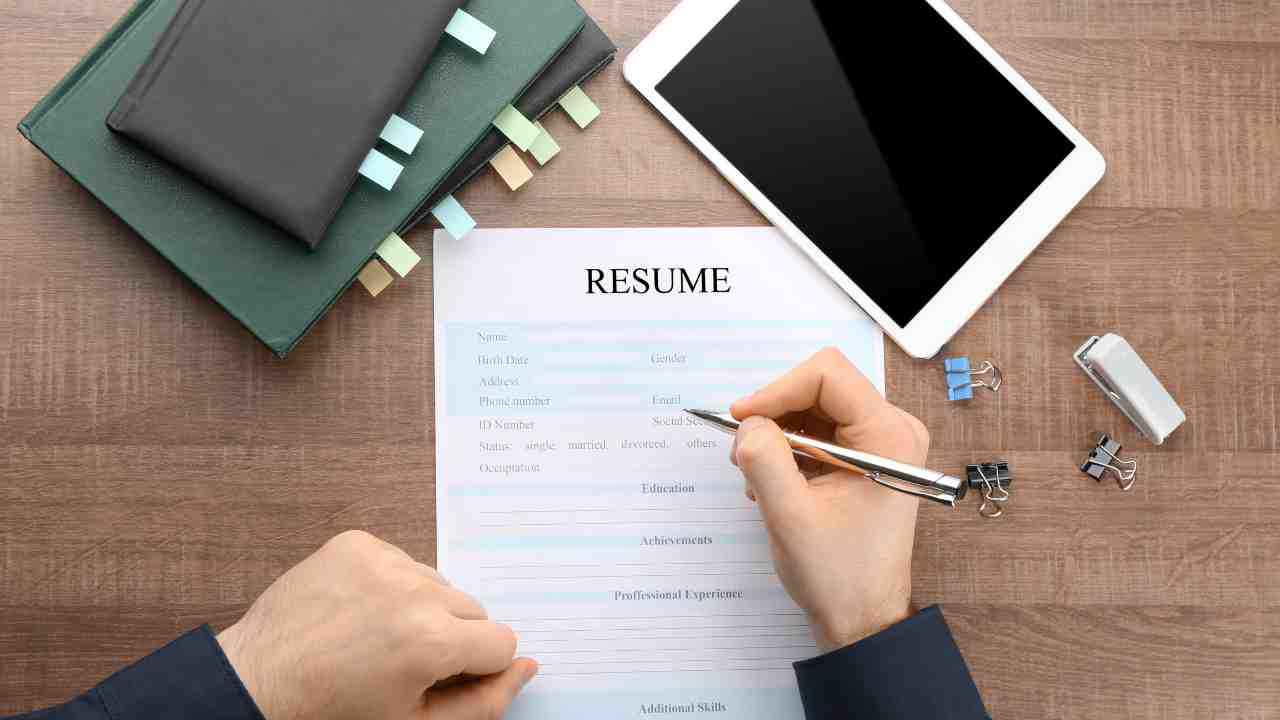Let’s first understand what a resume is, why we need one, and what we can use it for. A CV is your curriculum vitae in a nutshell. That is, through the CV you can present yourself professionally at first glance. Let’s say some company has a vacancy, and you want to apply for the job. At that time, you would need to submit a CV form to introduce yourself to that company’s human resources professional. This will tell him if you are the right person for the job, and he will form an opinion of you after an initial inspection.
A resume reveals the individual’s life, abilities, talents, business strength, and experience. In the other words, it summarizes the person’s skills so far.

Types of resumes:
- Chronological resume: the most commonly used resume. In this, formation as well as previous fields of work are provided chronologically, starting with today and going backwards in order.
- Functional resume: a short description is given of a person’s business life experience. In this part, an individual explains his or her own qualities, describing the benefits he or she will bring to a related field with his or her thoughts.
- Briefs are for new grads: Since those in this situation are new to the job, it is impossible to answer some questions. In that case, it is the proper expression of the purpose of an application that is the most important part.
You should give emphasis to the following information when drafting a resume:
- Name, last name, date of birth, place of birth, address, phone number, email address – Make sure this information is completely accurate and correct. Because this is the information that the recruiter looks at first, and every incorrect information here causes a negative opinion to be formed about you.
- Education. This is where your educational degrees are listed. In my personal opinion, it’s more important to have information about the university you graduated from or are studying here. This is because the HR department or the recipients of your resume are more interested in your college degree than in your high school education.
- Work experience – be sure to include your work experience, if any. This specialist is very influential in forming the overall opinion of the person about you. In doing so, he will be able to understand what you promised him in the initial form.
- Writing your work experience, you can write here what position you have and what you did in short form. How professional you write it is entirely up to you.
- Your references – this shows how well-prepared the candidate is. Here you can use your knowledge of foreign languages, courses or seminars, accomplishments, technological knowledge, and anything else you can think of. This creates an idea of how much the candidate possesses or has worked on himself, what he has, and how he will use it for the potential job.
- Social activities – here you can indicate how much you value your free time. Note that adding this section is optional for its purpose. Because what you are going to write in this section is more of a small idea of how you can work in a team environment. For example, photography, amateur acting, etc.
Conclusion
The purposes for writing a resume can be varied, including training, jobs, internship programs, conferences, etc. there are many reasons. Resumes can vary depending on the target. But in many cases, you can use a generic prepared resume of your own choosing or seek help to create one for you personally!
A professional resume is the key to success in finding the best job. After all, companies get up to 95 responses per job, and only 22% of candidates are invited for an interview. Best resume service online ResumeGets, will help in drawing up a professional resume, motivation and recommendation letter. ResumeGets is the leading agency providing resume writing and consulting services for active jobseekers. All documents are created and edited by top-notch experts.
The quality and originality of your resume determines the number of invitations to interviews with employers. And the number of interviews determines how many job offers you will have. This is why the resume is your first and one of the most important steps on your way to a future job!







